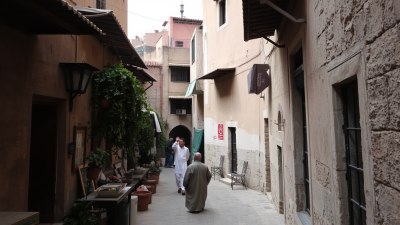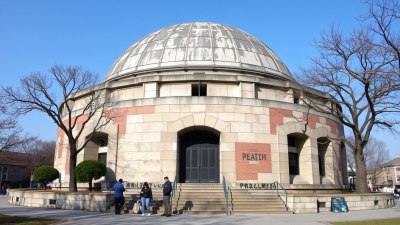How Traveling Can Make You Rethink Everything You Know About History
Explore how traveling reshapes our understanding of history through firsthand experiences and cultural encounters.

Traveling is often seen as a leisure activity, but it can serve as a profound educational experience that redefines our understanding of history. Every place on Earth carries its own story, a narrative that is sometimes well-known but frequently overlooked. As travelers move through various landscapes, they unearthe remnants of bygone eras that can challenge preconceived notions and enrich their knowledge. This article delves into how travel can compel individuals to rethink their understanding of history, enhance their appreciation for different cultures, and inspire a deeper connection to the world.
The Lived Experience of History
When individuals read about historical events, they typically engage with the facts presented in textbooks or documentaries. However, standing on the battlefield of Gettysburg or wandering through ancient ruins in Rome offers an entirely different perspective. The emotional weight of these locations can drastically shift one’s understanding of historical significance. Travel allows individuals to immerse themselves in the very sites where history unfolded, lending tangible context to abstract concepts.
For instance, visiting the Holocaust Memorial in Berlin can evoke feelings that facts and figures alone cannot convey. The stark reality of the memorial's design and the stories of individuals who perished transform the historical narrative into something profoundly personal. Through travel, history becomes not just a series of dates but a living, breathing entity that resonates on a human level.
Confronting Preconceived Notions
Travel can also challenge preconceived notions. For example, one might have learned that a particular culture is monolithic, characterized by stereotypes and myths. However, visiting the region may reveal a rich tapestry of diverse traditions, languages, and beliefs. Traveling to places such as India, with its many languages and religions, can dismantle simplified views of what the country represents.
By engaging directly with locals, participating in cultural events, and tasting regional cuisines, travelers gain a nuanced understanding of a culture’s complexity. This process can dismantle barriers and foster a more comprehensive view of history, one that acknowledges the multitude of perspectives that exist in any narrative. Instead of viewing history as a straightforward account, travelers learn to appreciate the shades of gray that exist within historical discourse.
Learning from Indigenous Histories
Travel to indigenous lands provides opportunities to learn about histories that have often been marginalized or erased in mainstream narratives. Engaging with the stories and traditions of indigenous peoples can instill a sense of awareness about colonization, land rights, and cultural preservation. For instance, visiting Native American reservations in the United States, travelers are often taught about their history from an indigenous perspective, allowing for a more rounded understanding of the past.
These interactions highlight the importance of considering multiple perspectives in historical narratives and encourage travelers to rethink the legitimacy of sources they’ve taken for granted. It becomes evident that understanding history requires recognizing whose stories are told and whose are left out.
Transformative Historical Narratives
Travel also allows for the discovery of transformative historical narratives that diverge from mainstream accounts. The journey through regions like Eastern Europe reveals how recent history, such as the fall of the Berlin Wall or the conflicts in the Balkans, has shaped current societies. Witnessing the resilience of communities that have undergone profound changes can instill a sense of hope and transformation.
Tourists often discover local museums and community-led historical projects devoted to preserving the memories of their people's struggles and victories. These sites can act as windows into a locality's unique historical context, retrospectively illuminating elements of history that are often neglected in broader discussions.
The Impact of Travel on Historical Empathy
Traveling cultivates empathy, an essential component in understanding. Engaging with historical sites, museums, and local narratives allows travelers to connect with the past on an emotional level. For example, visiting sites associated with the transatlantic slave trade can evoke a deeper understanding and a profound sense of responsibility regarding contemporary social justice issues.
Empathy encourages travelers to contemplate the implications of history and how it reverberates through present-day societal structures. This newfound awareness can inspire a commitment to advocating for change, whether through activism or by simply supporting local communities in their efforts to preserve and share their historical narratives.
History through Art and Architecture
Art and architecture are living embodiments of history, and exploring these forms can provide deeper insights into cultural identities. For example, while visiting the ruins of ancient Greece, one can appreciate the artistic achievements of a civilization that laid the foundation for Western thought.
Likewise, the architecture seen in cities like Istanbul reflects the city’s rich history, where Byzantine and Ottoman influences coexist in a unique architectural narrative. Travelers can analyze how art and architecture signify social values, political climates, and various cultural influences, allowing for a richer understanding of history.
Travel as a Reflection of Historical Change
Traveling often serves as a mirror reflecting historical changes over time. The resilience of communities in places affected by colonialism and conflict illustrates adaptation and endurance against adversity. Cities like Johannesburg, South Africa, showcase layers of history, from the impact of apartheid to the city’s current multicultural identity.
By participating in walking tours or engaging with local historians, travelers gain insights into how historical events shape the rhythms of daily life today. Observing how past injustices inform contemporary social issues encourages a more critical perspective on global history and its legacies.
The Ethics of Traveling with Historical Awareness
With the gift of travel comes the responsibility of ethical engagement with the destinations one visits. This means recognizing the historical and cultural significance of places while respecting the narratives of those who inhabit them. Travelers should strive to educate themselves about the histories and contemporary issues facing the communities they visit, advocating for responsible tourism that benefits local stakeholders.
Ethically engaged travel includes supporting businesses that prioritize sustainability and local culture, ensuring that tourism does not further commodify or distort historical narratives. As travelers connect with diverse cultures, a commitment to ethical practices allows for a more meaningful exchange and higher respect for those histories.
The Continuous Journey of Understanding History
As individuals traverse the globe, they engage in a continuous journey of understanding the complexities of history. Each experience, whether standing before an ancient structure or sharing a meal with locals, contributes to a broader perspective on humanity's past. Traveling encourages people to view history not as a fixed narrative but as a dynamic process influenced by myriad voices and experiences.
In the end, travel serves as a powerful tool for learning and understanding. By rethinking everything they know about history, travelers become not only better informed but also more compassionate global citizens. Whether through encounters with diverse communities or the exploration of significant historical sites, the act of traveling fosters a lifelong commitment to understanding the intricate tapestry of human history.











